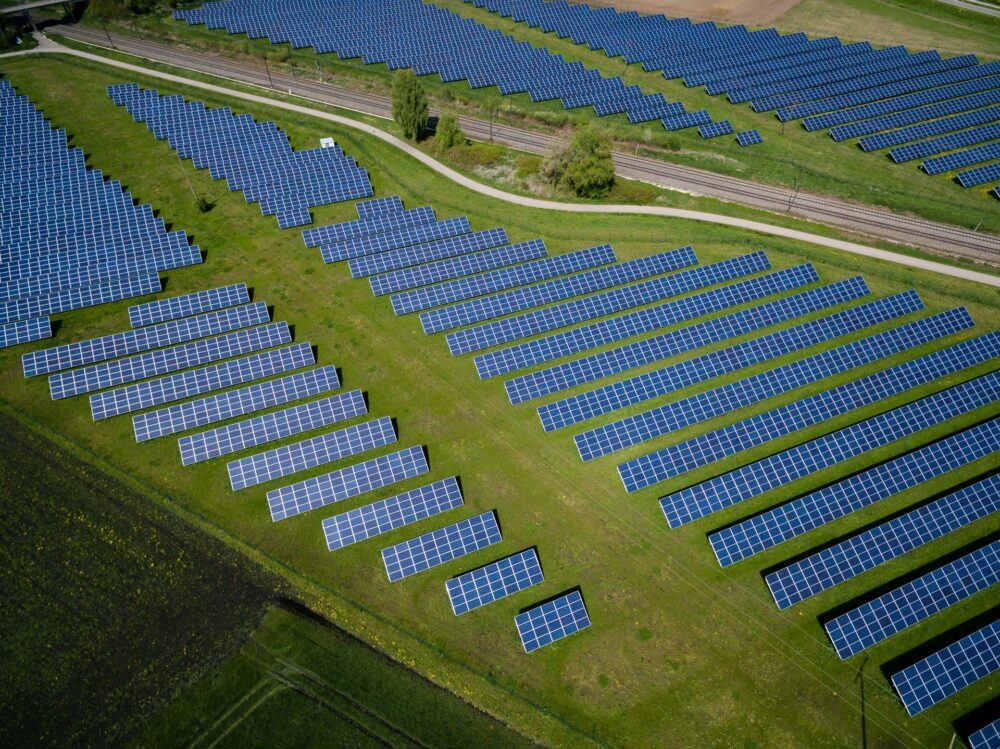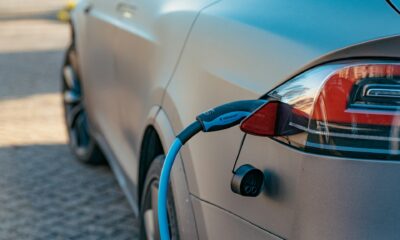Impact Investing
Italy Needs 1.01 Trillion Investments to Reach Net Zero Targets by 2050
Italy’s path to carbon neutrality requires a paradigm shift, with €1,010 billion in investments by 2050 and streamlined authorization processes. Despite growing renewable energy investments, outdated infrastructure and bureaucratic delays hinder progress. The Agici report urges collective effort, political action, and maintenance planning to achieve Net Zero, emphasizing realistic strategies and citizen participation in energy efficiency initiatives.

Renewables in Italy are growing, but achieving carbon neutrality requires a profound paradigm shift. A decisive acceleration of investments is needed, which, in order to achieve the Net Zero objectives , will have to reach the figure of 1.01 trillion euros by 2050, but not only that: it is a matter of adopting new public policies that lighten the bureaucratic burden of authorization processes, removing current regulatory obstacles and thus giving decisive impetus to the country’s energy transition.
The report shows that the willingness to invest in renewables in Italy by the main operators is high
These are some of the findings contained in the study Net Zero: the challenge and potential of renewable energy in 2050, presented today in Milan at the workshop Net Zero Economy in 2050: mirage or reality? organized by Agici in the 2024 edition of the Renewables Observatory OIR, which sees Edison as a strategic partner. An event attended by the top management of the main energy operators to discuss the objectives and challenges that await Italy on the path to becoming a “Net Zero Economy” by 2050.
To conduct the analysis, Agici outlined a roadmap of actions and investments needed to reduce climate-altering emissions in three key non-ETS sectors, residential, tertiary and transport, the most polluting of those considered, examining the role of RES in achieving decarbonisation objectives.
To analyze the state of the art of renewable development, the study then analyzed the strategies of 17 large Italian and European utilities, corresponding to a total installed capacity of 224.8 GW, consisting of 47% wind and 34% hydroelectric, increased during 2023 thanks to 42.6 billion euros of investments.
But if investments in RES continue to increase, their development is weighed down by an aspect that is still little considered, namely the state of the art of the existing renewable park. In fact, 70% of hydroelectric and geothermal plants date back to before 1980, while two-thirds of wind and photovoltaic plants date back to the period 2007-2014. Starting from an estimated capacity of 83 GW in 2025, 73.8 GW will have to be renewed in Italy by 2050 with an estimated cost of 48.3 billion euros, mainly destined for the photovoltaic and hydroelectric sectors.
The report shows that the willingness to invest in renewables in Italy by the main operators is high, confirmed by the forecasts of an increase in RES capacity in the period 2023-2030 equal to 63% (+147.6 GW) compared to that installed in 2023, and of a total amount of investments corresponding to 174.3 billion euros (42 billion considering only the Italian players).
However, Agici observes, if the will and financial resources are considerable and tangible in the operators’ plans, in Italy the bureaucratic processes still represent an obstacle too binding for the definitive development of renewables, despite the path traced by the PNIEC. A criticality, this, which finds expression in the approval procedures that are still too long and complex and which risks discouraging investments.
A collective commitment, concludes the Agici report, is therefore necessary if we want to achieve the European objectives, for which the direct contribution of citizens is also essential , called to do their part through virtuous behaviors, such as the implementation of energy efficiency interventions. A commitment for all the actors involved that, once again, places at the center of the debate the need for adequate incentive policies, which allow the overcoming of administrative bottlenecks.
“Imagining a decarbonized society means entering unexplored territory, projecting oneself into a completely new world: for this reason we want to underline that, to reach the European decarbonization objectives by 2050, we need realism, but above all a concrete and shared effort by all,” declared Marco Carta , CEO of Agici.
“Our study shows how companies are ready to do their part, now we await a response at the political level. There are still too many delays, moratoria and individual measures that, often in contrast with the PNIEC itself, slow down and block investments: accelerating the implementation processes is now an imperative that can no longer be postponed.”
“When talking about energy transition and innovation, it is necessary to keep in mind that the basis of the process is plants that are naturally subject to obsolescence. It is not enough to invest in renewable capacity to reach a Net Zero Society, but it is necessary to plan and anticipate tomorrow’s maintenance and renewal costs today” added Anna Pupino, Coordinator of the OIR Observatory of Agici, “Our country is required to have great foresight to support operators in sustaining costs and to guarantee, with adequate policies, correct maintenance of the plants.”
__
(Featured image by Andreas Gucklhorn via Unsplash)
DISCLAIMER: This article was written by a third party contributor and does not reflect the opinion of Born2Invest, its management, staff or its associates. Please review our disclaimer for more information.
This article may include forward-looking statements. These forward-looking statements generally are identified by the words “believe,” “project,” “estimate,” “become,” “plan,” “will,” and similar expressions. These forward-looking statements involve known and unknown risks as well as uncertainties, including those discussed in the following cautionary statements and elsewhere in this article and on this site. Although the Company may believe that its expectations are based on reasonable assumptions, the actual results that the Company may achieve may differ materially from any forward-looking statements, which reflect the opinions of the management of the Company only as of the date hereof. Additionally, please make sure to read these important disclosures.
First published in ESG NEWS. A third-party contributor translated and adapted the article from the original. In case of discrepancy, the original will prevail.
Although we made reasonable efforts to provide accurate translations, some parts may be incorrect. Born2Invest assumes no responsibility for errors, omissions or ambiguities in the translations provided on this website. Any person or entity relying on translated content does so at their own risk. Born2Invest is not responsible for losses caused by such reliance on the accuracy or reliability of translated information. If you wish to report an error or inaccuracy in the translation, we encourage you to contact us

-

 Crowdfunding2 weeks ago
Crowdfunding2 weeks agoAWOL Vision’s Aetherion Projectors Raise Millions on Kickstarter
-

 Impact Investing6 days ago
Impact Investing6 days agoItaly’s Listed Companies Reach Strong ESG Compliance, Led by Banks and Utilities
-

 Impact Investing2 weeks ago
Impact Investing2 weeks agoBNP Paribas Delivers Record 2025 Results and Surpasses Sustainable Finance Targets
-

 Impact Investing3 days ago
Impact Investing3 days agoCDP Approves €1.5 Billion Package to Boost Industry, Renewables, and International Development






















